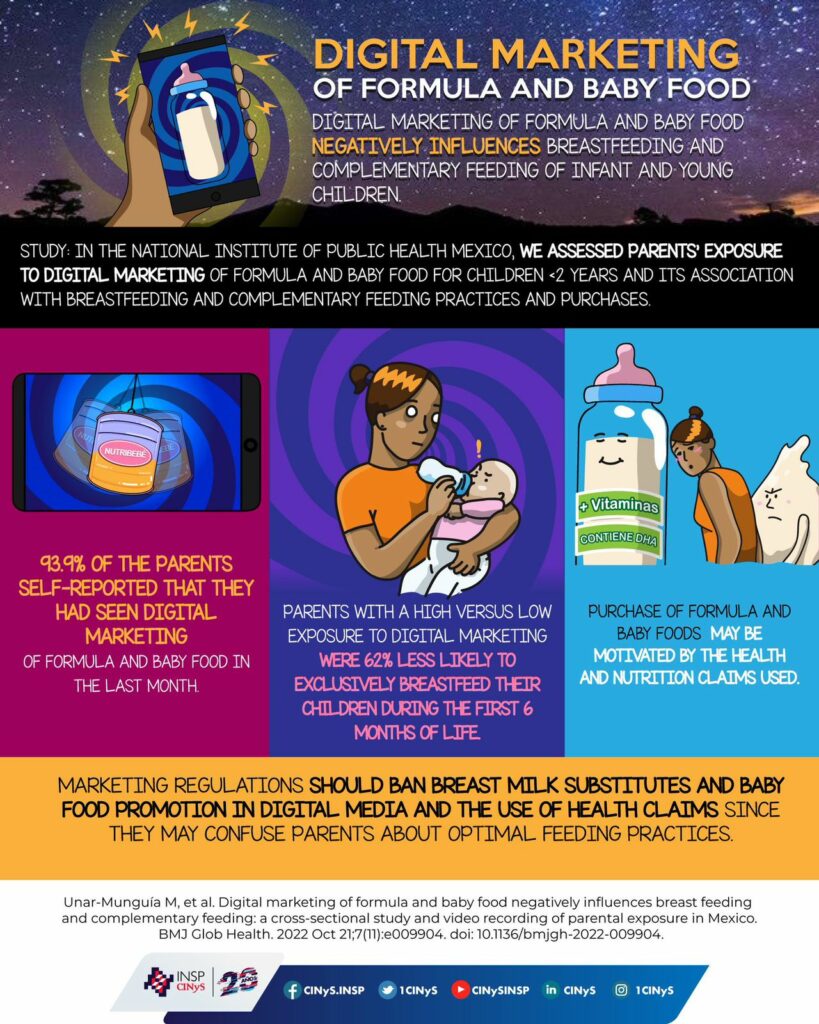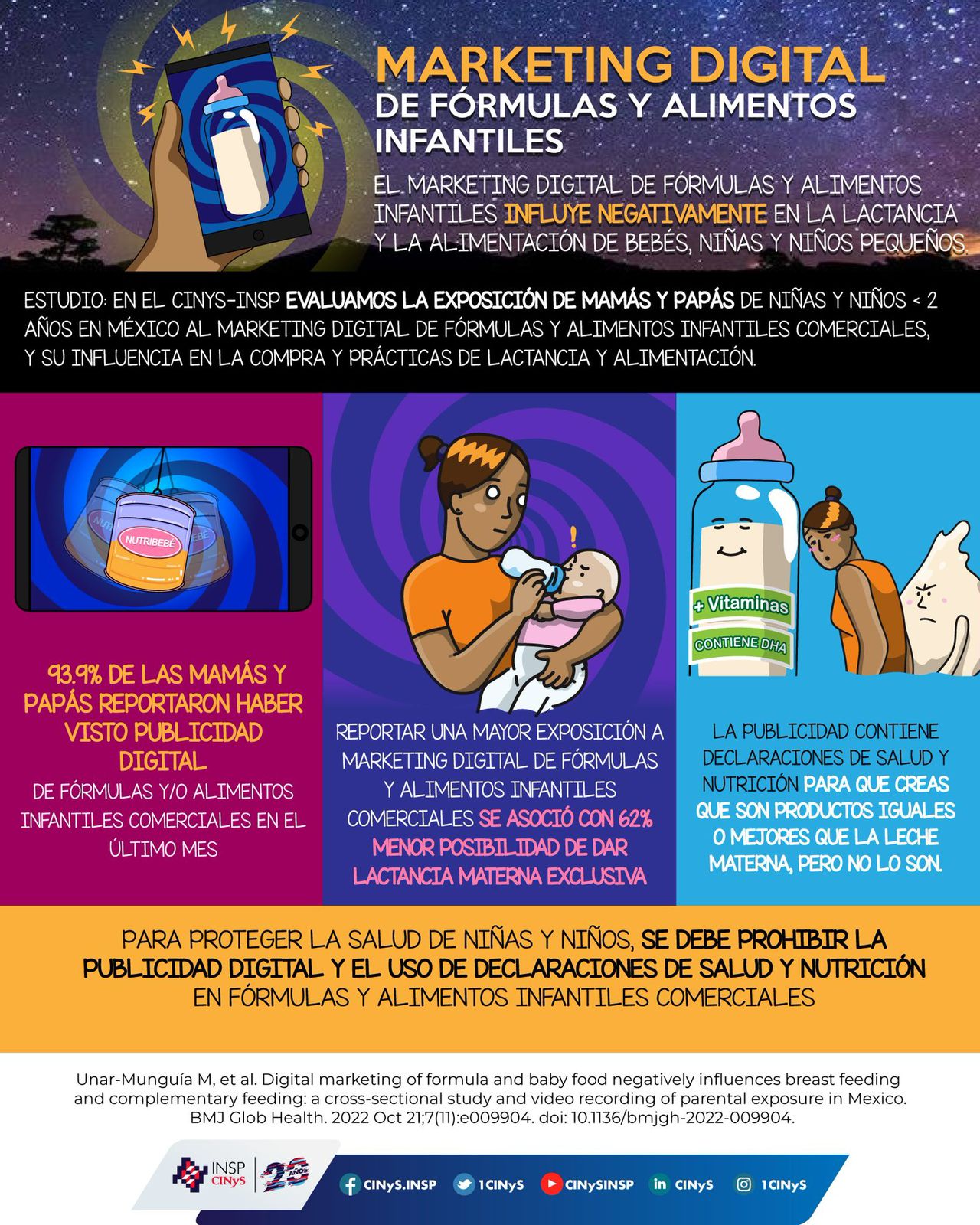 Following on from WHO’s recent report on the impact of Digital marketing, a new study from mexico provides some new evidence
Following on from WHO’s recent report on the impact of Digital marketing, a new study from mexico provides some new evidence
Digital marketing of formula and baby food negatively influences breast feeding and complementary feeding: a cross-sectional study and video recording of parental exposure in Mexico
Results Digital marketing of formula and baby food was self-reported by 93.9% of parents in the online survey and observed by 93.7% in the capture-on-screen. Recorded ads did not comply with the International Code of Marketing of Breast-milk Substitutes. Parents who self-reported seeing a higher versus lower number of ads were less likely to exclusive breast feed (OR=0.38; 95% CI: 0.19 to 0.78), and more likely to give mixed feeding (OR=2.59; 95% CI: 1.28 to 5.21), formula (OR=1.84; 95% CI: 1.34 to 2.53), processed foods (OR=2.31; 95% CI: 1.59 to 3.32) and sugary drinks (OR=1.66; 95% CI: 1.09 to 2.54). Higher exposure to ads was associated with a higher chance of purchasing products motivated by nutritional (OR=2.1; 95% CI: 1.32 to 3.28) and organic claims (OR=2.1; 95% CI: 1.21 to 3.72).
Conclusions Digital marketing of formula and baby food may negatively influence IYCF and should be regulated to ensure children’s nutrition and health.

